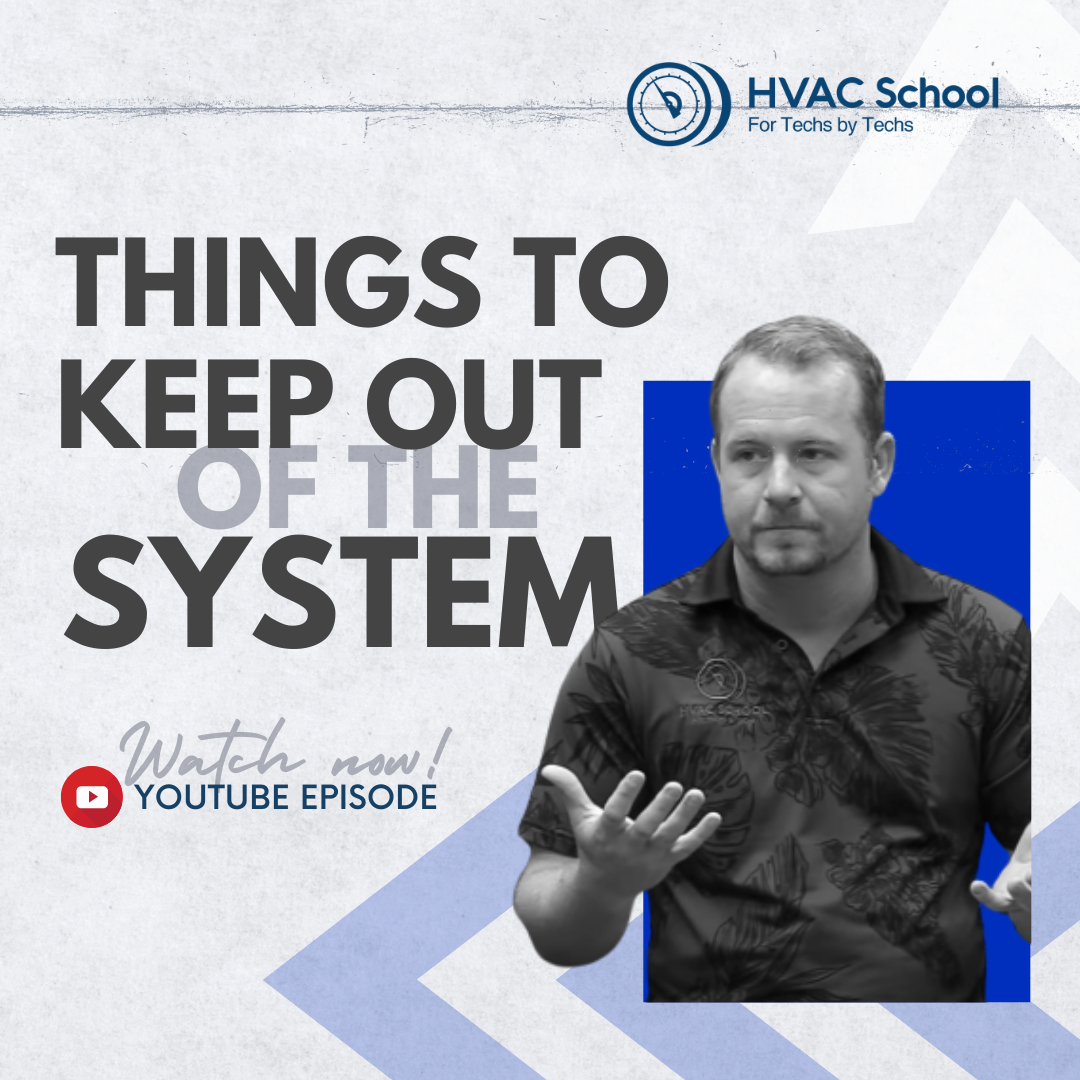Things to Keep Out of the System
November 26, 2022


You’ll want to keep water, dirt, air, solvents, copper shavings, the wrong refrigerant, and nitrogen out of the copper tubing of an operating system. We only want oil (lubricant) and the correct refrigerant inside the copper tubing of a system. However, POE and PVE oils are hygroscopic and can form acids when they interact with water, so we need to make sure there is no moisture in the system.
In the Central Florida market, we push copper underground and through chases, and we have to seal the tubing shut when we do that to keep contaminants from getting into the system while we’re pushing it. Pushing the copper is not a desirable installation method, as the soil can corrode the copper tubing, especially in coastal markets, and pushing copper in difficult places can cause the insulation to tear, which reduces performance. In colder markets, the oil and refrigerant can condense and pool in lower, colder areas of the tubing, which can lead to oil seals and issues when the compressor starts up. Airflow issues can make these problems worse, as the refrigerant velocity moves the oil around and is hindered by poor airflow.
In many cases, you’ll get solid contaminants in the system when installers aren’t careful while finishing up their pipe work on the outside. If you drop something into the tubing, blow nitrogen through the other side or use a pipe wiper. Whenever we reuse copper, we make sure to use pipe-wiper tools to get rid of excess oil, moisture, and other contaminants that may have gotten into the system due to poor original installation practices. It’s also important to tip the copper tubing downward while deburring or reaming and to flow a small amount of nitrogen while brazing.
Other good installation practices that prevent contaminants from getting into the system include nitrogen pressure tests and pulling a deep vacuum. If you pull a vacuum on a leaky system, you’re likely drawing in water vapor, which is something we want to keep out of the system. Reaming and deburring are also important, as copper burrs can cause turbulence in the lines and create leaks due to the excess friction.
You’ll also want to maintain your tools, especially your hoses, core remover tools, and vacuum pumps, to keep contaminants out of the system. You should be checking your tools, especially your vacuum pump, to make sure they’re clean and performing their very best.
Comments
To leave a comment, you need to log in.
Log In